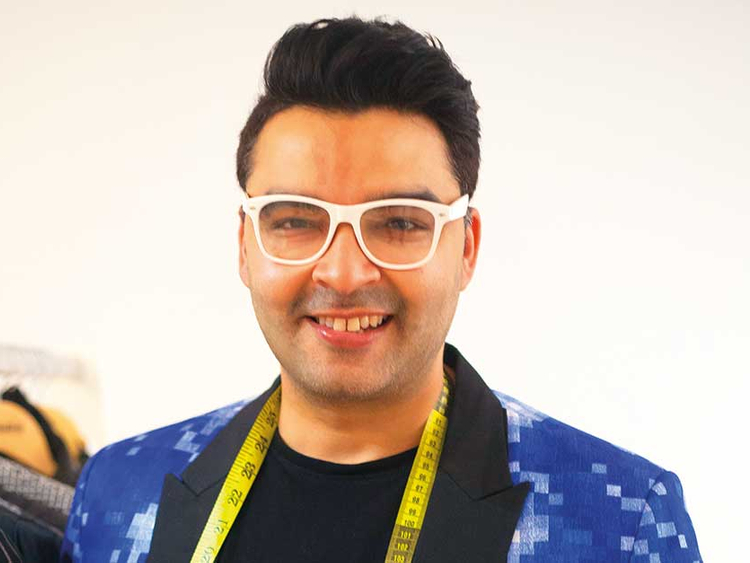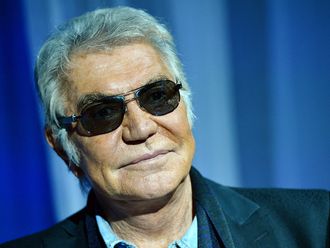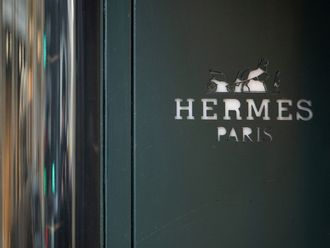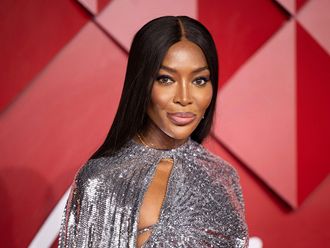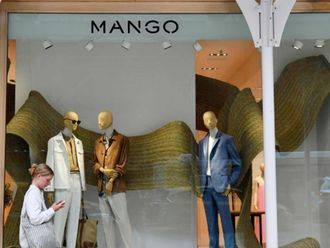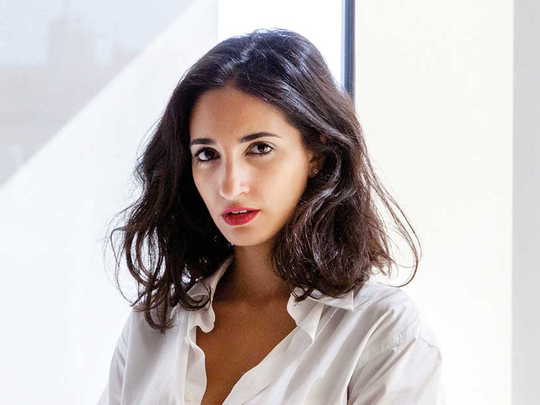
On Monday evening at an event in Dubai, two designers will be named and they will go on to represent the region — Middle East, India and Pakistan — at the prestigious International Woolmark Prize.
Ahead of the event, Gulf News tabloid! spoke to two of the regional nominees — Nour Najem from Lebanon (for womenswear) and the Dubai-based Varoin Marwah (for menswear) — who have a shot at the coveted Dh556,000 prize.
NOUR NAJEM
How does it feel to be nominated for the regional Woolmark Prize?
I am very proud and honoured to represent Lebanon along with Timi Hayek. My first thought was, ‘Okay, how am I going to do this? I have to win’. I love challenges, and so I kept adding more and more curveballs to things I wanted to do with my submission: portraying my heritage, the artisanal know-how, honouring Merino Wool in different states.
Have you seen the works of other designers you’re competing with? What do you think of them?
Of course. They’re all incredibly talented. I love how we’re all completely different, whilst still having underlying similarities in our styles, and we all sort of, in a very subtle way, tell the story of our upbringing and origins through our designs.
Tell us a little bit about your creation for the competition.
The outfit I chose to make is a perfect representation of the developed theme: ‘Shedding The Armour’.
The cut is simple, minimal, yet elaborate and saturated with details. It is made out of knitted trims of Merino wool mixed with lycra and silk as well as shreds of Merino wool crepe and silver and gold plated rings.
It’s a sort of unfinished, unravelling vulnerability and rawness coming through a revisited armour. The dress is made out of soft and natural fabrics, some opaque, others translucent, raw, fine, plain.
With the influx of international labels, do you think the Middle East is a tough market for regional designers?
This is a very good question, and a very valid point. Definitely. But the whole world is a tough market for emerging designers. The competition is rough. There are a lot of designers, people are buying [fewer] designer pieces and more fast fashion items for many reasons, amongst which [are] the unbeatable prices, but also because of the snap phenomena, where we take and post pictures of ourselves every day in different clothes.
What are the difficulties you faced as a designer based out of Lebanon? What are the advantages?
Beirut is a very inspiring city, to me at least, and it is full of artisans and tailors and seamstresses… and their services are relatively cheap if we compare them to other countries. The difficulties on the other hand… I ordered yarns from Italy to produce my piece for the Woolmark Prize. They’ve been stuck at the airport for the past three weeks… procedure, apparently.
I think one of the side effect of the unsteady political landscape in Lebanon is that we live day by day as if every day was the last. On the plus side shortcomings like these force us to be more creative and think outside of the box to find solutions. I’ve become tenacious, and never take no for an answer.
What would you say is your contribution to the fashion industry?
I would like to say I don’t know all of my contributions to the fashion industry yet. But for now, I’d to say I’m bringing a more humane, more soulful and very anchored aspect to fashion. When I launched my brand, in parallel I launched the Kenzah foundation. I wanted to positively contribute to social change regarding two points in particular: preserving and perpetuating traditional craftsmanship of the region; and empowering women and creating communities of strong working women of underprivileged backgrounds.
What’s the next step for your label? Where would you like to take it from here?
I have a few things cooking back in Beirut, a surprise with the Starch Foundation for October, a collaboration in the works. I would like sustainability, for my brand, my business, the women I work with, sustainability in preserving, exploring, and making full use of my heritage, and fulfilling my brand mission. To establish Nour Najem as a luxury ready-to-wear brand with a distinctive modern oriental identity, while reviving and transmitting artisanal crafts and empowering women.
What’s the one fashion philosophy you live by?
A life philosophy: Own up to it.
VAROIN MARWAH
How does it feel to be nominated for the regional Woolmark Prize?
I feel truly honoured. It feels great to be acknowledged for my body of work in this limited time. It is a great validation. I have learnt so many new aspects about fibres and yarns that I probably would have never learnt in this way had it not been for Woolmark.
Have you seen the works of other designers you’re competing with? What do you think of them?
I love fashion and the different take that each designer has. Personally I have been a great admirer of all the designers who are competing this time. Each one has a very distinct style and it will be interesting to see how each one of us has used wool in different forms. I always believe in the famous quote: ‘May the best man win’.
Tell us a little bit about your creation for the competition.
My creation is an attempt to revive the traditional UAE weave called Al Sadu and I have today’s busy man’s lifestyle in mind while designing this functional collection. I can’t reveal more at this stage. However, this collection is very close to my heart as it aims to blend the past with the present to cater to the needs of tomorrow.
With the influx of international labels, do you think the Middle East is a tough market for regional designers?
Dubai has always been a hub of the international labels and I take that as a healthy realistic environment to work around. I truly believe if we have to compete then we must compete with the best. It’s healthy and makes us all give our best.
What are the difficulties you faced as a designer based out of the UAE? What are the advantages?
UAE has been extremely supportive and with strong bodies like the Dubai Design and Fashion Council and platforms like Fashion Forward, one can only say that it’s brilliant to work here. I have not faced the kind of challenges that I would have faced in other parts of the world. UAE, in general, is a city of dreams and if one has the conviction then the country has everything laid out clearly for you.
What would you say is your contribution to the fashion industry?
I believe it’s the other way round as the fashion industry has been truly kind and contributed to my development with open arms. I have followed my passion and I believe this is just the beginning. I still have a lot to work [to do] and maybe after a few years I would be able to claim my contribution in a different light.
What’s the next step for your label? Where would you like to take it from here?
I want to work very closely with weavers from different regions and revive fibres that are not being used as much as they should have been. [The] fashion industry has the power to create job opportunities for the under-used weavers and fibres and I want to focus on this aspect along with my brands growth. I want to cater to more countries hence I aim to see my collections being available in different stores around the world along with a fantastic online shopping opportunity for anyone and everyone sitting any where in the world.
What’s the one fashion philosophy you live by?
Fashion is power. The power that can change the environment or a personality of an individual. I use this power on daily basis to enhance the existing environment and people around me.



